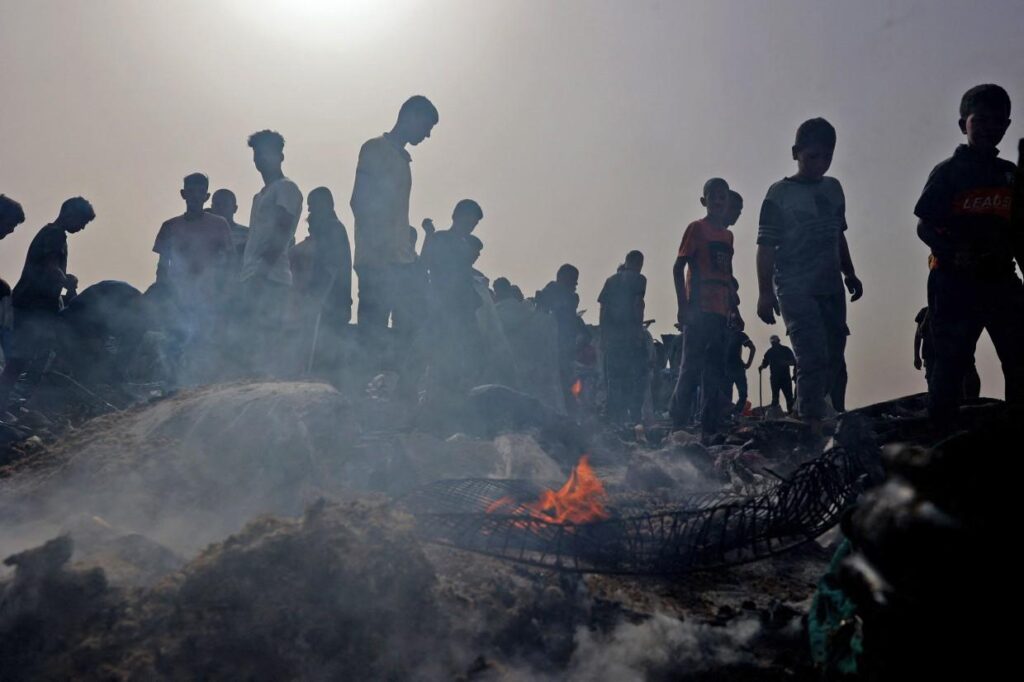In the war-torn region of Gaza, the delicate balance of aid and desperation has been disrupted once again. The United Nations, a beacon of hope for many in the region, has been forced to halt their aid deliveries due to rampant looting. This latest setback raises questions about the future of humanitarian efforts in Gaza and highlights the challenges faced by those trying to bring much-needed relief to its suffering residents.
Impact of Looting on Humanitarian Aid Efforts in Gaza
As looting continues to wreak havoc in war-torn Gaza, the United Nations has been forced to cease its humanitarian aid deliveries in the region. The rampant looting of aid supplies, including food, medical supplies, and shelter materials, has significantly hampered the UN’s efforts to provide much-needed assistance to the vulnerable population in Gaza. This disturbing trend not only exacerbates the already dire humanitarian crisis in the region but also puts the lives of countless individuals at risk.
The UN has been working tirelessly to ensure that aid reaches those in need in Gaza, but the relentless looting activities have forced the organization to reassess its operations in the region. Without access to vital supplies, vulnerable populations, including women, children, and the elderly, are left without the basic necessities required for survival. The UN is calling for an immediate end to the looting activities so that humanitarian aid can resume and reach those who need it the most.
Challenges Faced by UN in Providing Assistance to Gaza
Amidst the ongoing conflict in Gaza, the United Nations has faced numerous challenges in providing much-needed assistance to the affected population. One significant obstacle that has hampered aid delivery efforts is the rampant looting of humanitarian supplies by various armed groups operating in the region. This dangerous trend has forced the UN to temporarily cease all aid deliveries to Gaza, as the safety of aid workers and the integrity of humanitarian operations are at serious risk.
The looting not only deprives vulnerable individuals of essential resources such as food, water, and medical supplies but also undermines the humanitarian principles of neutrality and impartiality that guide UN relief efforts. In response to this alarming situation, the UN is working closely with local authorities and international partners to enhance security measures and ensure the safe and efficient distribution of aid to those in need. Despite these challenges, the UN remains committed to supporting the people of Gaza and will continue to explore innovative solutions to overcome the obstacles obstructing humanitarian assistance in the region.
Strategies to Protect Aid Deliveries in Conflict Zones
UN aid deliveries in Gaza have been halted due to rampant looting in the area, jeopardizing the much-needed supplies for the war-torn region. In response to this crisis, here are some strategies that can be implemented to protect aid deliveries in conflict zones:
- Increased Security Measures: Deploy additional security personnel to safeguard aid distribution centers and delivery routes.
- Cooperation with Local Authorities: Collaborate with local law enforcement and community leaders to address security concerns and prevent looting incidents.
- Utilizing Technology: Implement tracking devices on aid shipments to monitor their whereabouts and prevent theft.
By implementing these strategies, aid organizations can ensure that essential supplies reach those in need in conflict zones like Gaza, despite the challenges posed by looting incidents.
In Summary
the devastating impact of looting on aid deliveries in Gaza serves as a stark reminder of the challenges faced in providing crucial assistance to those in need during times of conflict. The UN’s decision to cease deliveries underscores the urgent need for all parties involved to come together and find peaceful solutions that will ensure the safety and well-being of the most vulnerable populations. Let us hope that this setback will pave the way for greater cooperation and solidarity in the future, so that aid can reach those who need it most in a timely and efficient manner.


